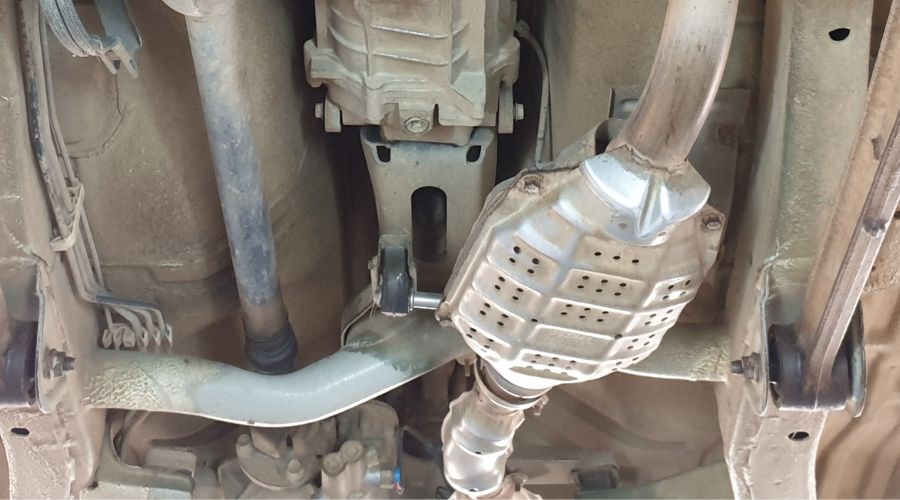When managing a diesel-powered vehicle, understanding the intricacies of a Diesel Particulate Filter (DPF) is crucial for maintaining its performance and compliance with environmental standards. At Consolidated Truck Parts & Service, we specialize in ensuring that your vehicle’s DPF system is functioning optimally, whether through cleaning or replacement. Let’s explore what a DPF is, how it functions, and how to determine the best care approach for it.

Understanding the Diesel Particulate Filter (DPF)
What is a Diesel Particulate Filter?
A Diesel Particulate Filter is a device found in the exhaust system of diesel vehicles. Its primary function is to remove diesel particulate matter or soot from the exhaust gas of a diesel engine. This filter is crucial for reducing emissions and complying with environmental regulations.
How Does a DPF Work?
Capturing Particulate Matter
The DPF traps the soot produced by diesel combustion. As exhaust gases pass through the filter, particulate matter is captured on the walls of the filter, allowing cleaner exhaust gases to pass through.
Regeneration Process
The DPF periodically undergoes a process called regeneration, where the accumulated soot is burnt off at high temperatures to clean the filter. This process can be either passive or active, depending on the vehicle’s operation and design. Passive regeneration happens during normal driving, when the exhaust temperature is high enough to naturally incinerate the soot. Active regeneration, on the other hand, may involve the vehicle’s engine control unit modifying engine operation to increase the exhaust temperature and initiate the burn-off process.
DPF Maintenance: Cleaning vs. Replacing
Maintaining your DPF is vital for the health and efficiency of your diesel engine. But when issues arise, should you clean or replace the filter? Here’s how to decide.
When to Clean Your DPF
Regular Maintenance
Regular DPF cleaning is a part of standard maintenance schedules. It involves removing the filter and cleaning it to remove soot and ash buildup, which cannot be cleared through normal regeneration.
Benefits of Cleaning
Cleaning your DPF can restore its efficiency and improve fuel economy. It’s also cost-effective compared to replacing the filter, making it a preferred choice for routine maintenance.
When to Replace Your DPF
Beyond Cleaning
Over time, the DPF can become too clogged with ash that cannot be cleaned effectively, or it may become damaged. In these cases, replacing the DPF is necessary to maintain engine performance and compliance with emissions standards.
Signs of DPF Failure
If your vehicle shows signs of decreased performance, increased fuel consumption, or fails emissions tests, it might be time to replace the DPF. Other indicators include frequent warnings to check the DPF or errors in the vehicle’s diagnostic system specifically related to DPF efficiency.
Why Choose Consolidated Truck for Your DPF Needs?
At Consolidated Truck Parts & Service, we are equipped with the expertise and technology to assess, clean, and replace DPFs effectively.
Expertise in DPF Services
Advanced Diagnostics
Our technicians use OE software and advanced diagnostic tools to accurately determine the health of your DPF and the best course of action, whether it’s cleaning or replacement.
Comprehensive DPF Replacement
Quality Replacement Filters
Should your DPF require replacement, we provide high-quality, compliant DPFs suitable for all makes and models, ensuring your vehicle meets all regulations and operates efficiently.
Schedule Your DPF Service at Consolidated Truck
Keeping your DPF in top condition is crucial for the performance and longevity of your diesel engine. Whether you need professional cleaning or a complete filter replacement, Consolidated Truck Parts & Service is your trusted partner in Monroe, Many, and Alexandria, LA.
Visit our website at https://www.consolidatedtruck.com or contact us directly at our service locations to schedule your DPF service. Let us help you keep your diesel engine running clean and efficient, minimizing downtime and maximizing performance.


